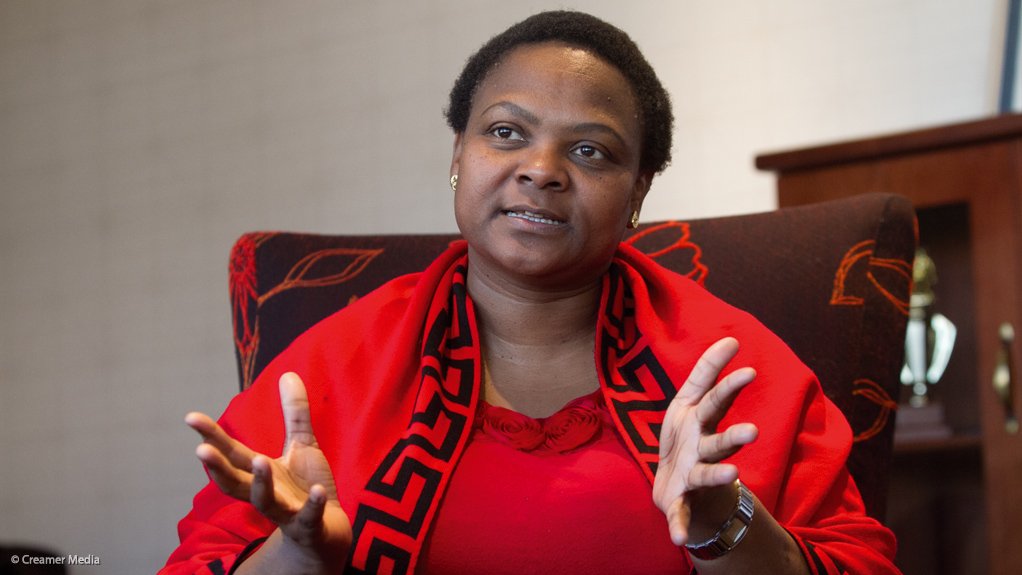The South African government is considering different ownership options for the country’s proposed new fleet of nuclear power stations, Department of Energy director-general Nelisiwe Magubane told the Nuclear Industry Association of South Africa (Niasa) 2013 conference in Port Elizabeth on Wednesday.
The government had decided last year that “the owner-operator of the new nuclear power plants being [sic] Eskom as the major shareholder,” she pointed out. “To assist with obtaining good financing and bring in operational experience, we are looking at various ownership options for the nuclear power plants, such as an investor or equity partner to join forces with Eskom in the nuclear new build.”
“One of the projects that [is] currently haunting us is [Eskom’s] Medupi [coal-fired] power plant delays,” she highlighted. “A whole thesis can be developed on what went wrong on this project. For us as a department, we believe that there are valuable lessons that can be learned and incorporated in [the] future design of other energy projects, especially our nuclear build programme.”
Magubane noted that the government “needs high quality advice in order to take appropriate decisions” and lamented that, although the government had been “very active” in seeking advisers, some of the preparatory work for the nuclear programme had been “less than satisfactory”. She reported that “there are many more advisory services [that] we are seeking, before and during execution of this programme.”
“We are of the view that nuclear energy can be deployed successfully, built on time and budget,” she affirmed. “Most of the Asian countries can attest to that.”
“I therefore challenge Niasa to also look closely on these challenges and do introspection,” she asserted. “Questions that Niasa need to ask is [sic] – do we have enough artisans and what is our plan to grow them if not? The truth is, there is a lot of homework to be done to see South Africa reach her full industrial capabilities.”
She pointed to the Department of Science and Technology’s South African Nuclear Human Assets Resource Programme and its new outgrowth, the Energy Human Capital Development and Knowledge Generation Programme. She also referred to the industrialisation programmes of the Department of Trade and Industry. “We are encouraging collaborations between [the] public and private sectors to implement available strategies to establish our local industry.”
“It is a known fact that nuclear power will be the most affordable baseload option after coal,” stated Magubane. “Given our climate change commitments, and the fact that some of the coal-fired power stations will retire around 2022 and require replacement, therefore nuclear power is becoming more of a necessity than an option.”
EMAIL THIS ARTICLE SAVE THIS ARTICLE
To subscribe email subscriptions@creamermedia.co.za or click here
To advertise email advertising@creamermedia.co.za or click here











